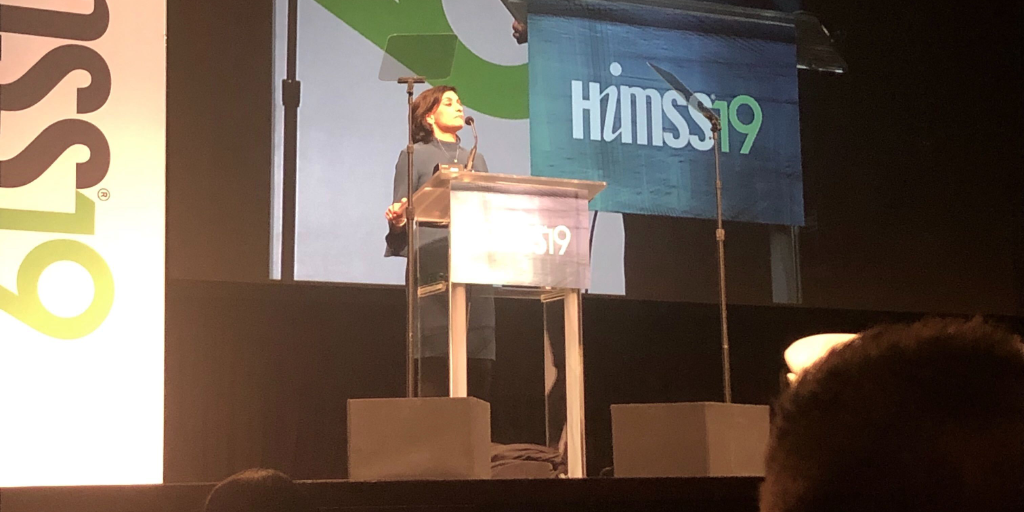Electronic health record (EHR) companies have their single biggest technical update to complete by September 2023, as announced in a recent a meeting with the Deputy National Coordinator of Health Information Technology. All EHR enhancements that are required to comply with the 2015 Cures Act standards must be completed by September 2023. All data that is shared must be normalized by that time and EHR technology vendors are required to certify with real world testing.
Will EHRs Implement the 2015 Edition Cures Update By the Deadline?
Topics: Interoperability, EHR, 2015 Edition Cures Update
CMS relaxes more rules around telehealth, allowing healthcare across state lines
The Centers for Medicare & Medicaid Services (CMS) continues to relax regulations to enable hospitals, clinics and other providers to boost their front-line medical staff during the COVID-19 pandemic. This pandemic has created an urgency for expansion of the use of virtual healthcare to reduce the risk of spreading the virus. It has also created a need to relax practice restrictions and allow more flexible care practices to meet the needs of patients.
Topics: CMS, Interoperability, Industry insights, Policy, Health IT, VBC, COVID-19
In last week’s blog, Point: The Promise of Blockchain, we discussed some of the exciting features of blockchain technology as it begins to take hold of the healthcare IT field. This week, we’re looking at the other side of the coin by outlining some of the pitfalls related to this technology.
Topics: Interoperability, Industry insights
Blockchain. It’s one of the biggest buzzwords in the Health IT industry today—and no wonder, because it seems to be an extremely promising technology, one that we've been keeping our eyes on for a few years now. Still, as cool as it seems, we have a long way to go. That’s why in this pair of blogs, we’re going to look closely first at the possibilities, and then at the hazards, that go hand in hand with this exciting trend.
Topics: Interoperability, Industry insights
Streamlining MIPS Reporting When Using Data from Multiple Sources
Health systems face a unique challenge when navigating the CMS Quality Payment Program (QPP). All currently available options to comply with the QPP require the submission of some form of clinical quality measures. With multiple specialties and often multiple sources for tracking billing and clinical data, aggregating all available data in a coherent, efficient, and centralized way can seem nearly impossible for the average health system. This case study demonstrates how MIPSPRO assisted one of their health system clients by streamlining their quality reporting process.
Topics: PRO Tips, MACRA & MIPS, Interoperability, Healthmonix, Health IT, Hospitals & Health Systems
The U.S. Department of Health and Human Services (HHS) recently proposed a new rule to support the access, exchange, and use of electronic health information (EHI). The proposed rule encourages the adoption of standardized application programming interfaces (APIs), which will help allow individuals to securely and easily access structured EHI using smartphone applications. This facilitates a patient's ability to access their health information by requiring that patients be able to electronically access all of their EHI for free. It also implements the information blocking provisions of the Cures Act.
The rule gives seven exceptions to the definition of information blocking (proposed at 45 CFR 171.201–207). If an actor (a healthcare provider, HIT developer, or HIE or network) satisfies one or more exception, their actions would not be treated as information blocking and they would not be subject to civil penalties and other disincentives under the law. These seven exceptions are outlined below (this information based on the CMS fact sheet found here).
Topics: Interoperability, Policy
Topics: Interoperability, Industry insights, Health IT
Topics: Interoperability, Industry insights, Health IT
The Problem of Patient Matching: New Pew Report Details Recommendations
In the pursuit of value based care, interoperability is key. But is it achievable in the current healthcare landscape? And if not, what would we have to do to bridge that gap?
Topics: Interoperability, VBC
When I was in graduate school, I quickly gravitated to projects and classes that focused on the relatively new field of database design and database technology. I loved the deep analysis of data and exploring the question of how to leverage technology to support storage and access to data in order to find answers. It was challenging, it was new, and it was a field that I knew would have a huge impact. My thesis was about data organization and optimization, and I was lucky to be able to experiment with all sorts of database challenges and software as I ultimately built my own contribution to the science.
At the Optum Forum conference this year, once again I was brought back to the data. As a recent partner with Optum, Healthmonix provides MACRA (MIPS and ACO) reporting for Optum clients in addition to our existing client base. At the conference, I heard the cries of how fundamental the data really is as we move forward in the value-based care market. As much as we need to work with providers and payers to change patterns of practice, a critical component is the data that supports the change and that measures the impact.
This is because data is what drives precision medicine and AI initiatives. It drives understanding, affirms what we already know, points out new patterns that we haven’t realized, and shows us where our perceptions are correct and where they are not.
Topics: Interoperability, Industry insights, Health IT










